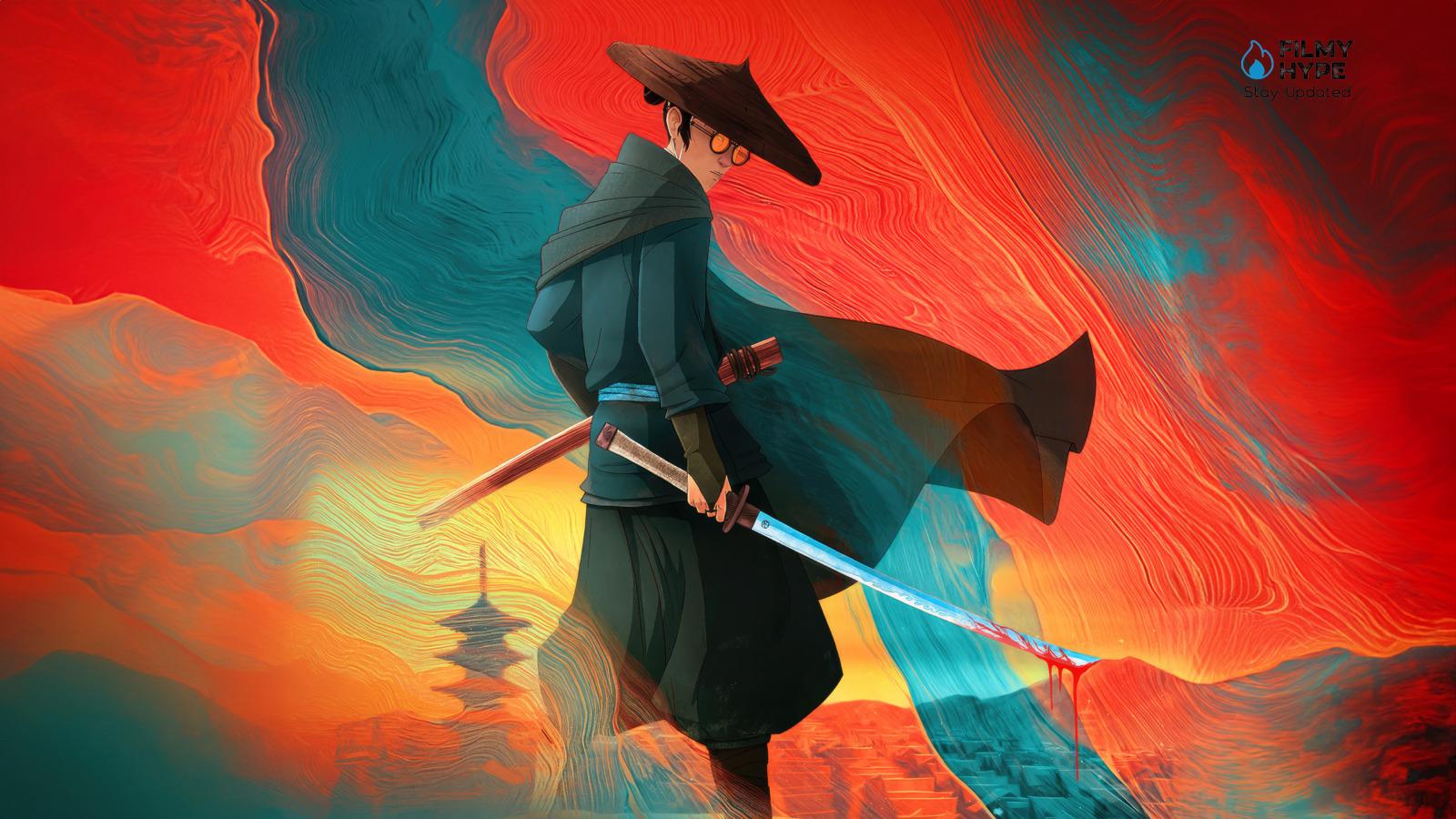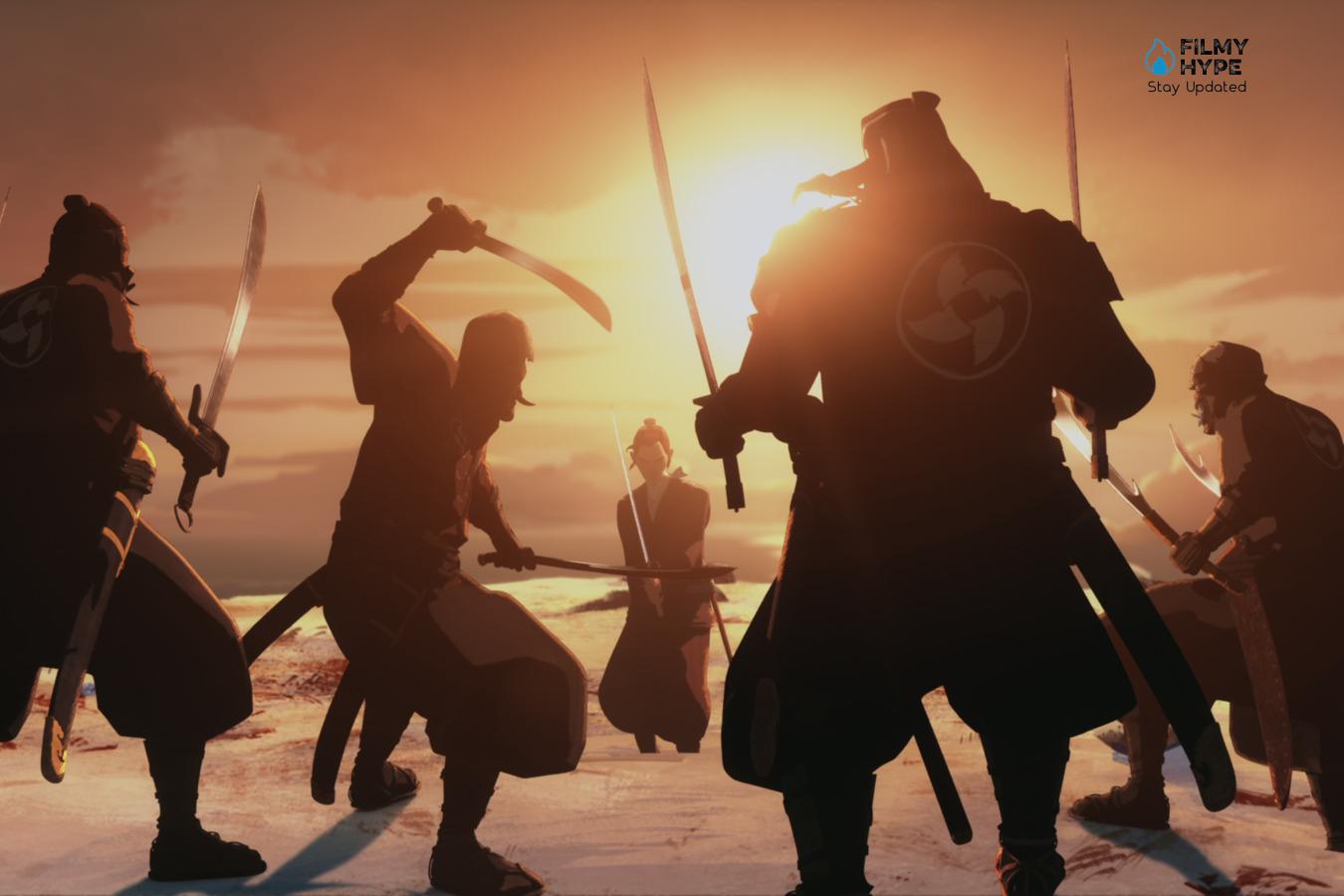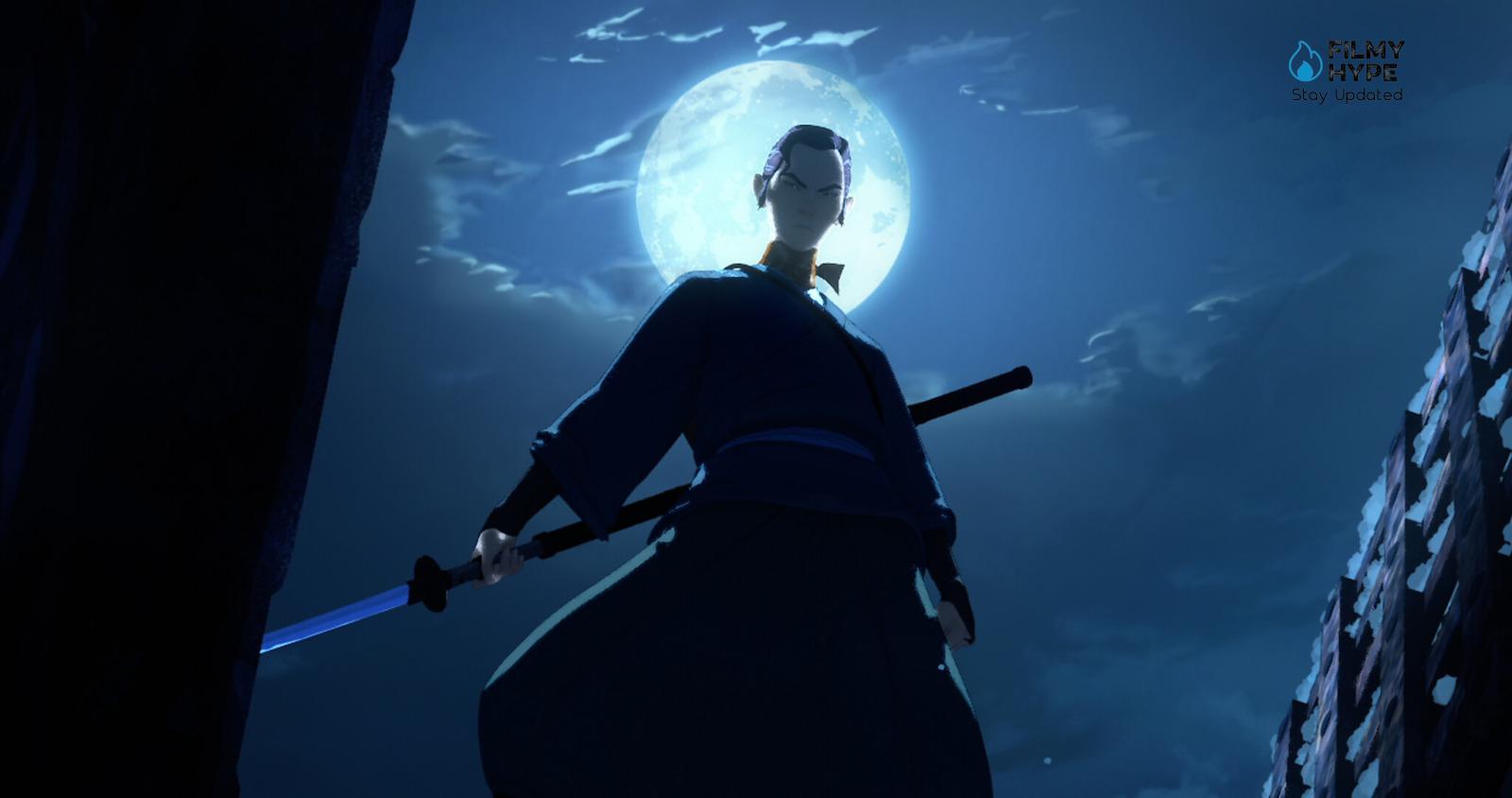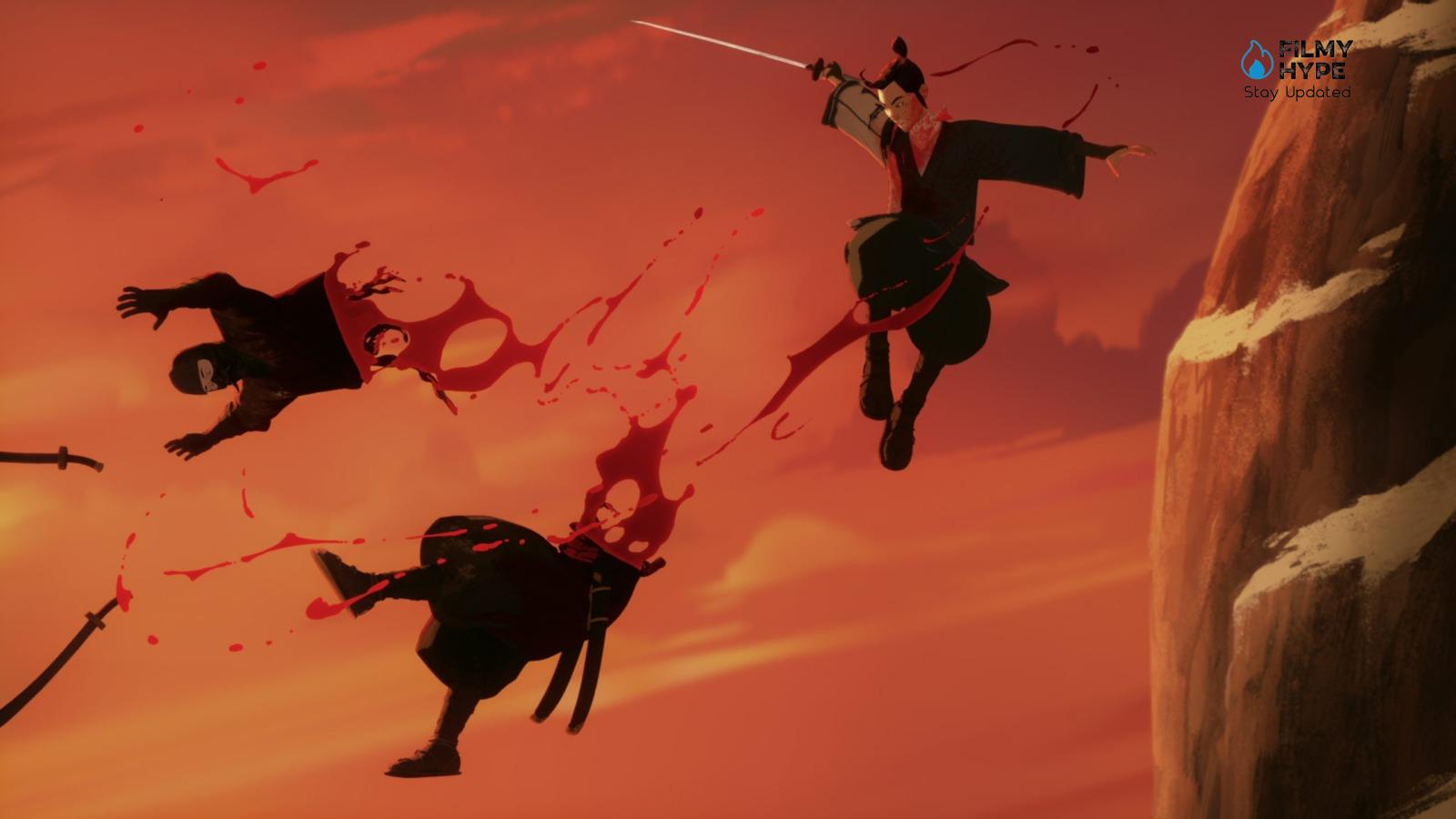Blue Eye Samurai Review: A Solid Product That Raises the Quality of Netflix Animated Series
Cast: Maya Erskine, Brenda Song, Kenneth Branagh
Created By: Michael Green, Amber Noizumi
Streaming Platform: Netflix
Filmyhype.com Ratings: 4.5/5 (four and a half stars)
Blue Eye Samurai is an animated TV series available for streaming on Netflix starting from November 3, 2023, in eight explosive episodes. A perfect product for fans of samurai and Japanese mythology, the anime is aimed at an adult audience with strong stomachs, hearts, and minds. There is nothing simply enjoyable or superficially appreciable in Amber Noizumi and Michael Green’s creation. Green, in particular, makes his artistic and creative presence perceptible by quoting his action works, masterful and memorable for anyone familiar with a certain type of cinema: we are talking about great acclaimed feature films such as Blade Runner 2049 and Logan. Screenwriter and producer, he manages the violence of his creations with incredible grace. Blue Eye Samura I offers the viewer a revenge story that follows all the typical tropes of the genre but operates a classy quotationism and exploits the beauty of the animations to present itself as an emulative, referential, or self-referential work of art.

Eight episodes lasting an hour each might seem excessive at first, especially to tell a samurai story, but upon careful viewing, you realize that they are exactly perfect. Or, at least, they are for the story of Mizu, a female swordswoman in the Edo era of ancient Japan seeking a brutal revenge that may be too ambitious to ever truly be achieved. Some stories take exactly the time needed to tell themselves and don’t ask for forgiveness, this is one of them. Netflix made a splash this time too. Blue Eye Samurai is a very pleasant surprise, a hidden gem (due to poor marketing) but unmissable for animation lovers! A deep characterization of the characters, incredible direction, and a very fresh animation style are the ingredients for creating an excellent revenge story. In this review of Blue Eye Samurai, we will show you why in our opinion it is a series to recover!
Blue Eye Samurai Review: The Story Plot
Blue Eye Samurai is set in seventeenth-century Japan, during the Edo Period, a time in which the state completely closed off relations with the rest of the world. The protagonist of the series is Mizu, a young ronin, that is, a samurai without a master, who hides her identity. Not only does she cover her femininity (in an extremely patriarchal country and era) but she also hides her very rare blue eyes. Mizu was born due to sexual violence suffered by a Japanese woman by one of the four white men illegally present in Japan at the time. The woman’s childhood was not easy: being of mixed blood, there was never a shortage of racial insults. The only person who raised her was Master Eiji, a blind blacksmith who therefore never saw her blue eyes. Finally, an adult, his plan to take revenge on her can begin. Her goal: was to kill the four white men in the country. On her way, she will meet Ringo, a hands-off chef who wishes to be her apprentice, and Taigen, an old acquaintance of hers. The group will face a journey full of combat and important revelations.
Blue Eye Samurai tells the story of the young Mizu, a samurai woman trained in the art of the Japanese sword by a master blacksmith, a master swordsman himself, but blind. Mizu, however, is not only atypical for her sex and for the violent path she chose with the weapon she learned to handle: but her appearance also makes her different, bullied by her people since she was very young. age. For her compatriots, the girl is almost a cursed chimera, an ancestral creature without luck who speaks of colonialism and violence in the ancient Japanese empire. Mizu is a half-breed: the daughter of a Japanese mother, but she has an unknown Caucasian father who gave her “white” features and very light blue eyes. For the suffering that her physical appearance has caused her, the pain brought to her family and loved ones, Mizu decides to take revenge: but it is not easy to take revenge on all the white men present in Japan, hoping that one of them is her father.

His long – and difficult – climb towards the final goal is full of progress but also disastrous failures and miserable falls. Because Mizu herself, although she has her reasons for suffering and wounds, is certainly not a samurai like the ones we are used to. It does not have the stoic honor of Akira Kurosawa’s ancient and solemn warriors (from which the series draws without hiding it) or the ideological reasons of territory and honor present in the legendary films of Sergio Leone – which permeates some of the artistic choices present in the series – nor does it have the pure anarchy of the characters played by Clint Eastwood. Mizu is a protagonist but also an anti-heroine, a character who wants to inflict pain on all those who prevented her from being loved, and free. Because, after all, all those who despised her led her to despise herself, first and foremost her sex: it is no coincidence that Mizu lived her whole life hiding in men’s clothes to get what she wanted.
Despite the protagonist’s great imperfection, her antagonists are even more hateful: the powerful businessman Heiji Shindo and his Irish partner, Abijah Fowler. On the way to reach these two unattainable representatives of colonialism at its worst, conquering and destructive, Mizu will also find a friend and helper: the strong but tender Ringo, whose goal is to accomplish great deeds and be remembered. The adventure will be joined by the strong and romantic Akemi, who wants to marry Mizu’s rival, Takemi. The intrigue of these characters, primary and secondary, is handled perfectly and arrives – albeit sometimes at a slow pace – towards the goal prescribed and established by the determined, fearless samurai. Mizu is, like the other characters who accompany her, very strong but certainly not indestructible: failure will be part of her process and by seeing her in difficulty the spectators will be prodded, glued to the screen. Between a very high-quality visual story by Jane Wu, accompanied by the brilliant care of photography and music by Amie Doherty, and one of the most punctual original dubbings ever found in anime, Blue Eye Samurai is one of the titles of 2023 not to be missed.
Blue Eye Samurai Review and Analysis
An animated TV series not only in the literal sense of the term: Blue Eye Samurai is a rare creature, with very high image and sound quality, a true picture brought to the screen. In addition to the splendor and refined violence present in the duels, the show also has a rare cast of A-list actors in the original voice acting: Maya Erskine is Mizu, Brenda Song is Akemi, while the legendary Randall Park, recently appeared in Aquaman, is the evil Heji Shindo. Finally, the dubbing by Kenneth Branagh, a cold and Mephistophelian Abijah Fowler, infallible and powerful in all his artistic manifestations, appears masterful. A work of art within a work of art is also the delicate portrait of ancient Japan, forced to deal with phenomena such as the rise of Christianity and Western colonialism. In a fantastic, poetic version enriched by dream imagery, even such a strong political trauma becomes the canvas of a painting that changes with a few brushstrokes and not a barbarism as an end in itself.
The reference to Kurosawa’s works is clear, after all lately between video games like Ghost of Tsushima and TV series like Ahsoka, which we told you about in our review, of the Star Wars universe, references to the jidaigeki genre have returned forcefully. However, Blue Eye Samurai shows one of the best results, being even more realistic than the average anime present, but at the same time imaginative enough to keep the viewer’s involvement high. From an artistic point of view, we understand Netflix’s great commitment and such a high level has perhaps not been seen since Arcane was released in 2021. In every single shot, you can perceive a special and meticulous attention to detail. His animation style, then, ranges from classic Japanese paintings to classic samurai films up to the Westerns of the 60s.
Wanting to make a comparison with Onimusha, given that they also share the same period of release on the big N streaming service, Blue Eye Samurai also features an intense use of 2D-3D hybrid animation, however in this case it follows an effective logic and has a unique pictorial quality. The visual beauty manages to compensate, although not always, for a narrative style that is far too didactic and not free from holes, especially when dealing with supernatural elements whose explanation is blocked by annoying and disappointing cliffhangers. The artistic sector shines above all in the combat sequences, more and unexpectedly during the longer battles. The fight choreography is vibrant and fresh and much of the credit goes to the animation which makes each battle exciting. Credit, however, must also be given to Mizu and her splendid characterization of her.

The character has a strong and compelling character and is so central to the story that trivially everything she observes would not exist if she were not what she is. Her fighting style is a mixture of different techniques that she learned from her childhood, fusing various schools of training. Friends and enemies are unique and are perfectly blended in the story also because Mizu, in many aspects, is a classic anti-heroine. Blue Eye Samurai manages to masterfully and gradually delve into the protagonist’s psychic landscape, offering a glimpse into her past that reveals a greater emotional complexity than it might initially seem. The series, then, features many other characters but does so in a one-dimensional way to give the right three-dimensionality only to the protagonist and a few other sporadic characters potentially important for the future story.
In conclusion, Blue Eye Samurai is a product that borders on perfection. The defects are minor minutiae considering the numerous advantages present. It is a strong, courageous series, with many references, but not derivative, and manages to give the viewer real emotions that are difficult to experience while watching an animated series. The protagonist and the rest of the characters are very human and real and immerse you perfectly in the Japanese Edo period. At the same time, however, animation and action are used to push the story towards something more epic and fantastical, without ever losing Mizu’s central point of view. Simply put, and without mincing words, it is one of the best products we have ever seen on Netflix.

To talk about the themes of the series we can connect to the two main inspirations of Blue Eye Samurai: Kill Bill and Mulan. From the first, the series takes up the thirst for revenge, the desire to complete one’s mission, whatever the cost, while from the second we find pretending to be who we are not to get what we want. Unfortunately, women in a patriarchal society like seventeenth-century Japan could only aspire to two jobs: wives or prostitutes. Mizu opposes this problem and becomes a warrior, a forbidden job for women of the time. A point in favor of the series is the fact that it is extremely current, despite the setting being so far from the present day. The viewer can identify with the discourses and themes that Blue Eye Samurai addresses. Unmissable is episode five where we discover Mizu’s sad past due to a bereavement, an episode that borders on perfection, where the direction, screenplay, and animation reach their highest point.
The main flaw, in our opinion, appears to be the pace, Blue Eye Samurai is a series that takes its time to tell its story. We do not recommend binge-watching, an attitude typically used for Netflix products, but we advise you to watch no more than one episode a day, to grasp all the positive sides of the series. For example, we cannot fail to talk about the fight scenes present in practically all the episodes. Choreographed like dance moves, each battle will enchant you, thanks to the incredible amount of violence and blood present in them. Furthermore, be enchanted by the beauty of the photography in the series. Each setting is extremely poetic, so much so that each frame seems like a work of art. Now all you have to do is catch up with Blue Eye Samurai, while we hope for Netflix to renew it for a second season which will continue Mizu’s story.
Blue Eye Samurai Review: The Last Words
Blue Eye Samurai is a solid product that raises the quality of Netflix animated series and invites all action and Japanese fans to take a look at the platform. Green and Noizumi have created a captivating saga, full of references, but also unique and original elements that offer many exciting scenes to hold the viewers’ attention. The artistic sector is splendid, and the protagonist and the various secondary characters are wonderful, it’s a shame for some narrative holes remain unresolved until the end. Blue Eye Samurai is an excellent adult animated series: inside we find blood and sex, but also profound themes such as racism, mourning, and revenge, all seasoned with an excellent animation style that has nothing to envy of other productions’ high-level cinematography.

https://www.youtube.com/watch?v=nJ1yQn17lbE&ab_channel=Netflix





